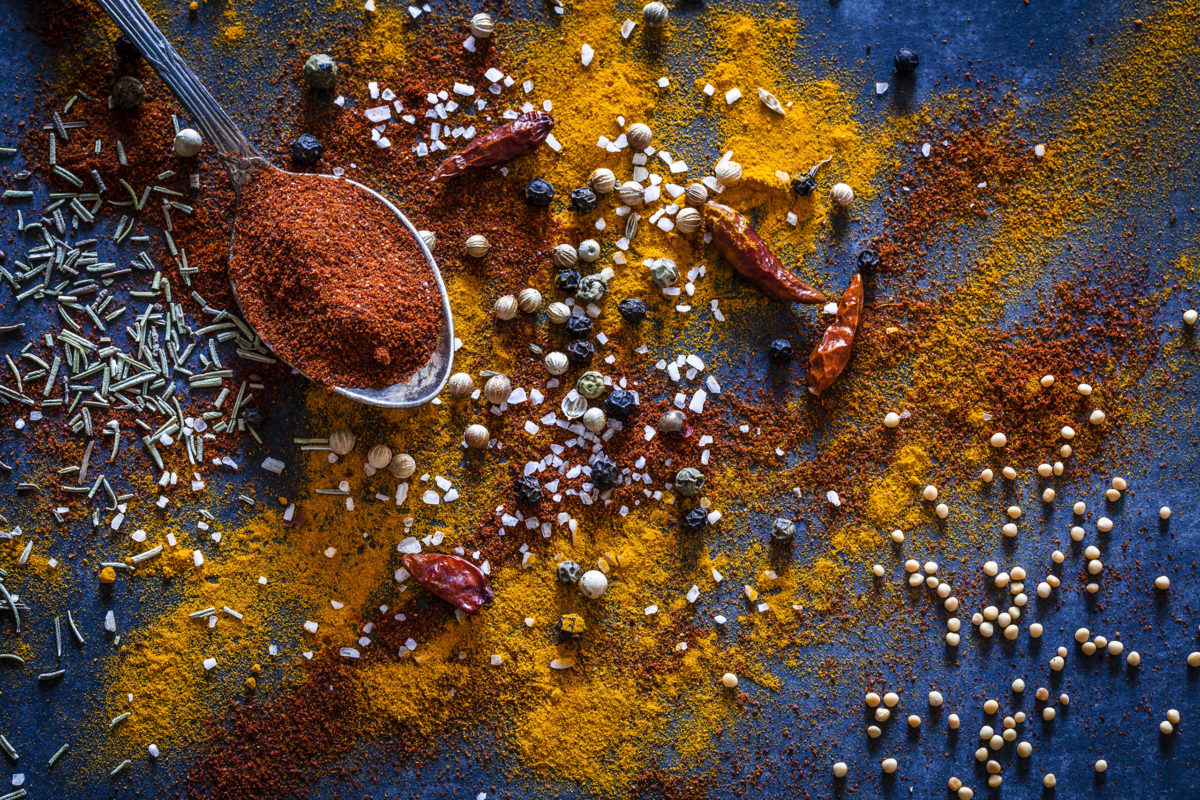Ready to punch up the flavor in your diet? Look no further than the spice aisle at the grocery store for some inspiration.
Spices can enhance the natural flavors in many foods and help you enjoy them to their full potential, but many people don’t know which ones to use or how to use them most effectively.
Plus, using spices creatively can help you cut down on your sodium intake. About 9 out of 10 Americans consume too much sodium, so spices can help expand your flavoring repertoire beyond the salt shaker.
“Flavoring with spices is not only a great way to create a tasty dish without the extra salt, but it’s also a great way to take in valuable phytonutrients, which help protect against cancer and help fight off inflammation,” says Leslie Cornett, a registered dietitian and nutritionist for BlueCross BlueShield of Tennessee.
Where to start?
First, you might want to open up your spice cabinet and do a quick inventory. What do you already have? The Academy of Nutrition and Dietetics suggests stocking these spices in your kitchen, if you don’t already have them on hand:
- Cayenne pepper
- Cumin
- Garlic powder
- Onion powder
- Bay leaf
- Curry powder
- Thyme
- Paprika
- Nutmeg
- Clove
There are countless ways to use the spices in your food, from mixing garlic powder with a little soy sauce and ginger to make an Asian-inspired dish, to mixing some cumin and cayenne with chili powder for a Southwestern flair. Don’t be afraid to experiment.
Here are 4 other commonly-used spices that might appeal to you, too.
Turmeric
Turmeric hot drinks have become very popular recently – you might have spotted turmeric tea or turmeric latte on the menu at your local coffee shop. Turmeric is what gives a curry dish that distinctive yellow color. It contains a substance called curcumin, which has been heralded for its anti-inflammatory qualities. Add a little to chicken broth or use it when roasting a batch of root vegetables. But don’t overdo it. Turmeric is generally considered safe, but consuming large amounts of turmeric could upset your stomach. Additionally, people taking blood thinners might want to steer clear, since large amounts of turmeric can amplify the effect of those medications.
Sage
Most people think of sage as part of the stuffing for their Thanksgiving turkey. You could also use it to season chicken or pork. Dried sage contains vitamin K. Dried basil is another spice that contains significant amounts of vitamin K, which your body needs to help with important functions like blood clotting and keeping your bones healthy.
Oregano
Oregano is fragrant and high in antioxidants, which can fight off free radicals that can damage your cells. Mix it with some basil or parsley and sprinkle on tomatoes or add to a tomato-based sauce.
Marjoram
Marjoram is an herb that’s popular with Mediterranean-style cuisine and historically has been touted to aid in digestion. So if you’re giving the Mediterranean diet a try, why not try adding marjoram to some of your dishes? It might help some of your vegetable dishes, meats and salads to shine.
Take some time to try out combinations of other spices. For example, try using dill and lemon pepper to season your fish, or use tarragon and garlic the next time you roast a chicken. Pick and choose several spices that appeal to you and develop your own combinations that don’t rely on salt. Another tip: try using citrus juices for a punch of fresh flavor, and then add a little bit of a fresh herb, too.
“Once you retrain your taste buds to become satisfied with natural seasonings, you’ll be amazed how much you enjoy more flavor,” says Cornett.
When to throw it out
If you’re using the same few spices over and over again, you may have a bunch of other spices taking up space in your cabinet. If it’s been awhile since you did an inventory of your spice cabinet, don’t worry. Dried spices don’t really “go bad” but do lose flavor over time.
To test one, sprinkle a little in your palm and rub some on your finger to smell and decide how potent the scent is. Experts say that flavor will probably fade along with scent. You make the call if the spice still seems flavorful enough for you, or if it’s time to buy a new jar.
Get more information about specific health terms, topics and conditions to better manage your health on bcbst.com. BlueCross BlueShield of Tennessee members can access wellness-related discounts on fitness products, gym memberships, healthy eating and more through Blue365®. BCBST members can also find tools and resources to help improve health and well-being by logging into BlueAccess and going to the Managing Your Health tab.


